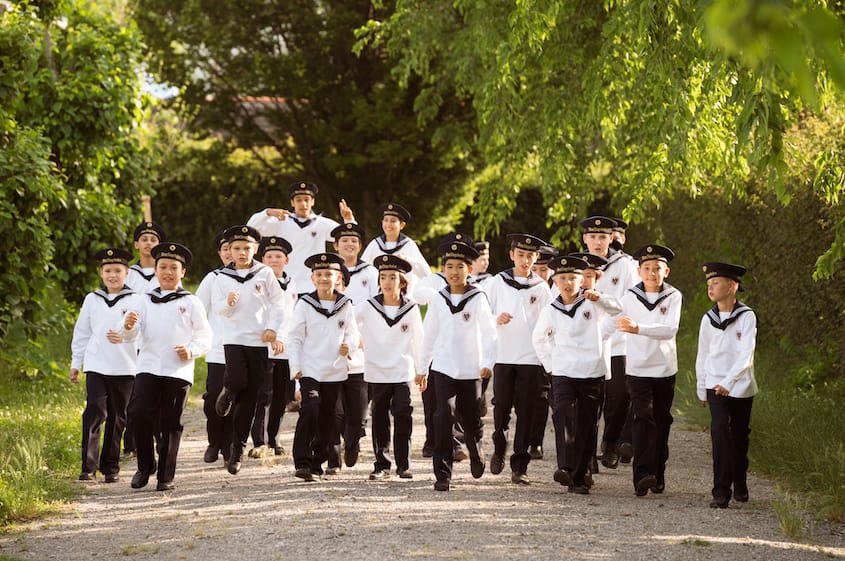Vienna Boys Choir: A Passage to India

They are the world’s most famous boys’ choir with a history dating back 700 years, and they are probably the best travelled music ensemble you can find, with four subgroups clocking up around 300 concerts every year, singing to half a million people around the globe: the Vienna Boys Choir. This year, one of their groups is coming to India. It is their first visit since 2004.
Boys have been singing at Vienna’s Imperial Chapel since 1296. In 1498, Emperor Maximilian I (HRR) moved his court to Vienna, thus founding the “Hofmusikkapelle” (Chapel Imperial), and the Vienna Boys Choir. Over the centuries, the Viennese Court attracted musicians like Heinrich Isaac, Johann Joseph Fux, Antonio Salieri, Wolfgang Amadeus Mozart, and Anton Bruckner; Joseph Haydn, his brother Michael, and Franz Schubert were themselves choir boys. Until 1918, the boys sang exclusively for the Austrian imperial court.
Today, there are 100 choristers between the ages of nine and fourteen, divided into four touring groups. Each group spends ten weeks of the academic year on tour. Since 1924, 2521 choristers have sung over 1000 tours in 98 different countries.
From 23 October to 2 November, the Vienna Boys Choir is set to tour India, with concerts scheduled in New Delhi and Mumbai. It is the Choir’s seventh visit to the subcontinent. They first travelled to India in 1961.
The Choir’s programme, compiled for this year’s tour, comprises pieces telling of its historic roots, with compositions written especially for the imperial choir from the fifteenth, sixteenth, and seventeenth centuries, as well as classical favourites by Mozart, Rossini, and Schumann. In addition, the choir will sing Viennese waltzes and polkas by Johann and Josef Strauss, cheerful music for which they are justly world-famous.
The second part of their programme offers a whole host of Indian connections. Heinrich Heine penned his poem “On Wings of Song“ in 1827, the year in which Jayadeva’s Gitagovinda received its first accurate German translation. All of Europe had developed a passion and a longing for India, which Mendelssohn captured in music. To complete their passage to India, the boys have learned two very special pieces: Man kunto maula by the father of qawwali, Amir Khusrow (1253 – 1325), and the famous bhajan Raghupati Raghav Raja Ram, set by Vishnu Digambar Paluskar (1872 – 1931), founder of the Gandharva Mahavidyalaya music school, and sung by Mahatma Gandhi (1869 – 1948) during the Salt March in 1930. “These pieces have the most amazing rhythm,“, says Steven, one of the boys in the choir, “There is an incredible energy when you sing them.“
And in their free time? What will the boys do in India? For most of them, it will be their first time in the country. They want to see temples, explore a bazaar or two, buy gifts for their families at home, and have lots of Indian food. And they are looking forward to meeting a not-so-old colleague, Rishan, a fourteen-year-old from Gurgaon, who sang with them for four years and graduated from the Vienna Boys Choir this summer.
The Vienna Boys Choir will perform at the Kamani Auditorium in New Delhi on the 28th of October and the Tata Theatre in Mumbai on the 30th of October.





